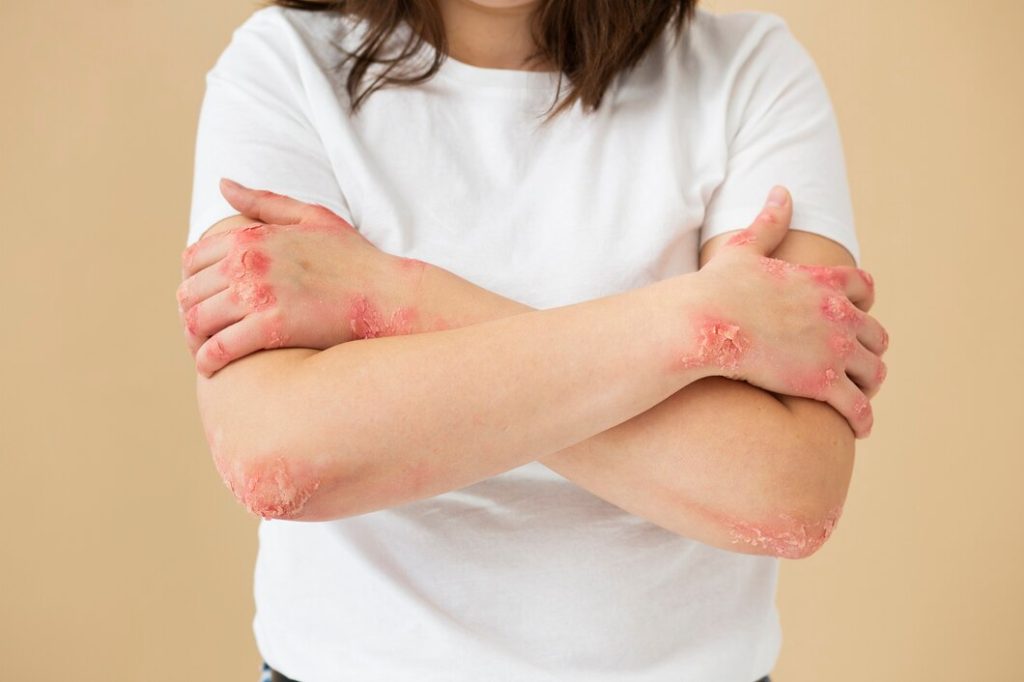Psoriasis is a chronic autoimmune condition characterized by the rapid growth of skin cells, leading to scaling on the skin’s surface. While there is no definitive cure for psoriasis, various treatments can help manage symptoms and clear outbreaks quickly. Here are some effective strategies for fast relief from psoriasis:
1. Topical Treatments
Topical treatments are often the first line of defense against psoriasis. They can reduce inflammation, slow down skin cell turnover, and relieve itching.
- Corticosteroids: These anti-inflammatory creams or ointments are commonly prescribed to reduce swelling and redness. They are available in various strengths, and stronger formulations are typically used for more severe cases.
- Vitamin D Analogues: Calcipotriene and calcitriol are synthetic forms of vitamin D that can help slow skin cell growth and promote healing.
- Retinoids: Topical retinoids, such as tazarotene, can help normalize skin cell production and reduce inflammation.
2. Phototherapy
Phototherapy involves exposing the skin to ultraviolet (UV) light under medical supervision. It can be highly effective for moderate to severe psoriasis.
- UVB Therapy: This treatment uses UVB light to slow down skin cell growth. Regular sessions can lead to significant improvement.
PUVA Therapy: This combines a medication called psoralen with UVA light therapy, which can be effective for severe cases. This is also used in the treatment of vitiligo, as elucidated in the video below.
3. Systemic Treatments
For more severe psoriasis, systemic treatments that affect the entire body may be necessary. These include:
- Biologics: These are advanced medications that target specific parts of the immune system. They can provide rapid relief and are often used for moderate to severe psoriasis.
- Methotrexate: This medication can help reduce the rapid turnover of skin cells and is often used for severe cases.
4. Lifestyle Modifications
Making certain lifestyle changes can also help manage psoriasis symptoms effectively:
- Moisturizing: Keeping the skin well-hydrated can prevent dryness and scaling. Look for thick creams or ointments that lock in moisture.
- Diet: Some studies suggest that an anti-inflammatory diet rich in omega-3 fatty acids (found in fish and flaxseeds), fruits, and vegetables may help reduce flare-ups.
- Stress Management: Stress is a known trigger for psoriasis flare-ups. Techniques such as yoga, meditation, and regular exercise can help manage stress levels.
5. Creams, Emollients and Baths
Some individuals find relief through topical exposure to natural balms. The top choice would be the 3 creams by Eurcerin, CeraVe and Neutrogena, but you can also consider the following for soothing the skin:
- Aloe Vera: Topical applications of aloe vera gel may help soothe the skin and reduce redness.
- Oatmeal Baths: Soaking in oatmeal baths can relieve itching and inflammation.
- Urea Creams: These creams are humectants that soften the skin, hence protecting its barrier function.
6. Traditional Chinese Medicine
Traditional Chinese Medicine (TCM) is often neglected when a person is suffering from a psoriasis flare or is just stagnant in recovery.
There is abundant research on the internet explaining how psoriasis can be treated using TCM, and the video below shares a case report of how psoriasis can be cleared rapidly at a clinic in Singapore.
Conclusion
While psoriasis can be challenging to manage, various treatments, both medical and traditional, have their place in the treatment continuum. Lifestyle changes are also important to prevent the skin from being triggered.
By combining medical treatments with different self-care strategies, individuals with psoriasis can significantly improve their quality of life and manage flare-ups effectively.

